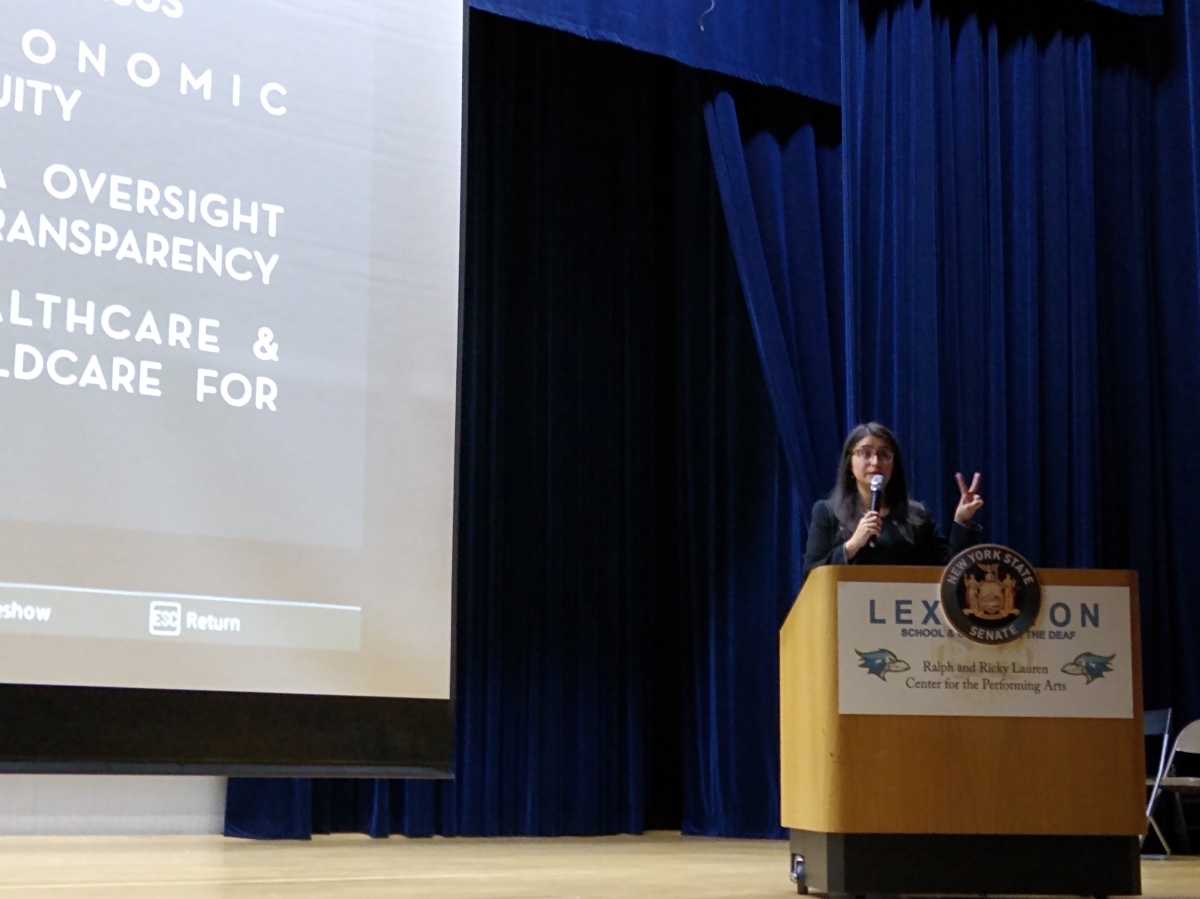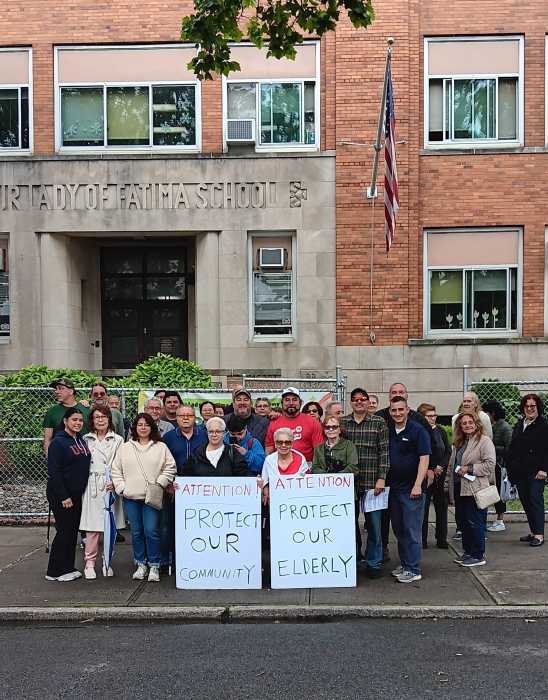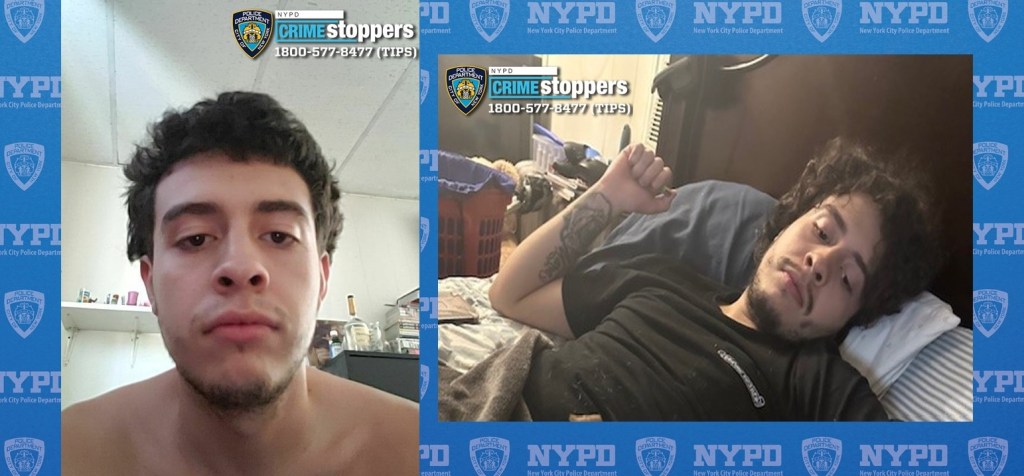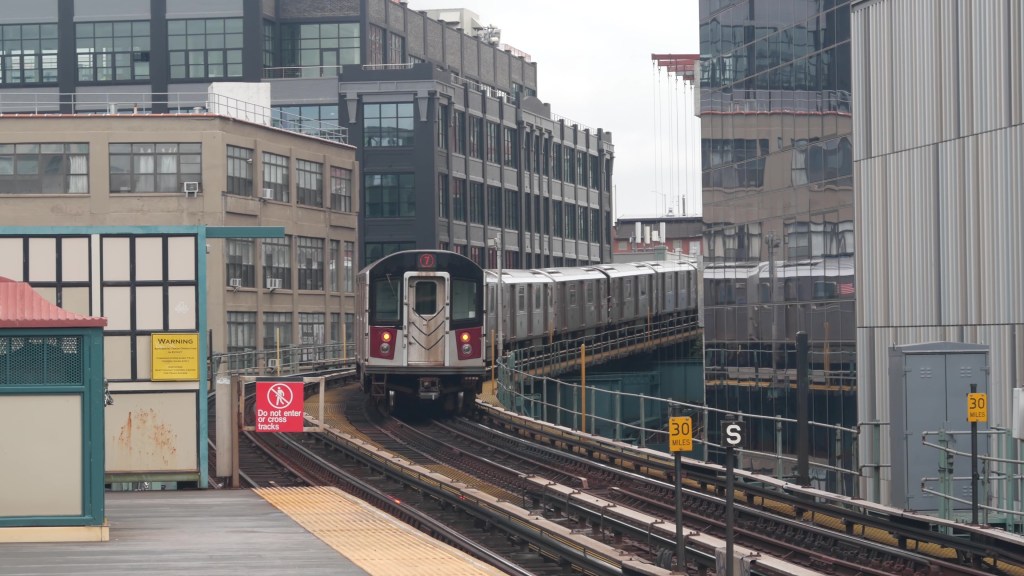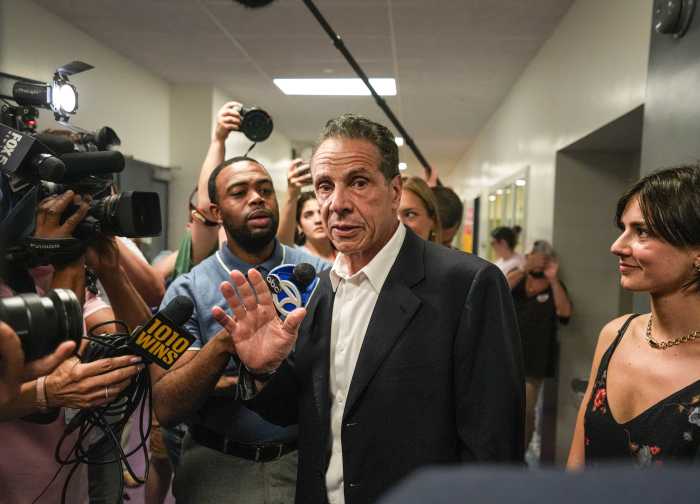State Senator Jessica Ramos covered a lot of ground at her end of the year town hall on Dec. 5 in East Elmhurst, ranging from micro to macro. In moments, she went from protecting a bike lane on 34th Avenue to overhauling the state’s health care system.
Ramos, a freshman senator representing Jackson Heights, East Elmhurst, Corona and parts of Astoria, has proven herself to be a leader in the bold new progressive faction that swayed the agenda of the last legislative session and passed groundbreaking reforms on housing and climate change.
She expects more of that in the next session. But the town hall did not just give her a platform to present her new legislative ideas; it also forced her to address constituents who do not see eye-to-eye with her politics. In response, she showed herself to be open to listening but unapologetic for her views.
“Queens is the future,” she said. “I really feel that we have that responsibility to pass laws that help each other.”
After highlighting some of her sponsored legislation that was passed over the past year, like the Climate, the Green Light bill and the farm workers’ act, she went on to lay out her priorities for the upcoming session, which begins Jan. 8.
Her goals revolved around four pillars: healthcare, the census, economic inequality and MTA oversight.
She began by outlining the fight for healthcare for all. Ramos is a co-prime sponsor of the New York Health Act, which proposes to installing the state government as the sole payer for health care in New York, which would make it the first state to establish a single-payer system.
“We want to be that model state; we don’t California to steal all the shine,” said Ramos.
A version of the bill has been floating around since the 2015-16 session, but its prospect vastly improved once the Democrats seized control of the upper chamber in 2018. That being said, Ramos related issues around working with unions. As a labor-minded the challenge is to figure out how to administer care in the way that they are accustomed to under the Taft-Hartley Act.
Ramos said the goal is to avoid ending up with a public option. Later in the town hall, when a constituent raised questions about how the state could afford such a plan, she countered by saying they were working on new sources of revenue as part of the plan.
“The biggest problem that we have in New York is that we don’t tax the rich,” Ramos said.
She also presented what he deemed her childcare for all bill, which would establish a system of state-subsidized childcare for infants and toddlers under 3. It proposed to with a three-tier payroll tax, or a percentage of percentage of the sum that businesses pay their employees. Ramos said that the next three months are critical to to get it through before the finalization of the budget in April.
The big announcement for the night, though, involved the $3.5 million State and Municipal Facilities (SAM) Program funding that the district will receive. Of that funding, $1 million will go to creating a clinic in East Elmhurst with doctors to make up for the fact that the district does not contain a hospital. The closest one, Elmhurst Hospital is just outside the district limits.
A moment of tension popped up around the bail reform legislation that is set to go into effect on Jan. 1. A constituent, who said she believed that it was generally necessary, raised concerns about the specific sub-sections of violent felonies that the law would apply to.
Ramos prefaced that she was not going to expound the the history of bail reform, which she believed to have racist roots, before firmly responding that she would not work toward a repeal of the law.
“Bail has always been a way to keep poor people who are accused of crimes in jail,” she said.
Overall, the constituents who came to push back were in the minority. As Ramos fielded the question, she was met with applause from those gathered.
Later on, a member of Vocal-NY, a group that advocates for low-income New Yorkers, praised her for the “courage to commit to a consistent way of seeing things.”

